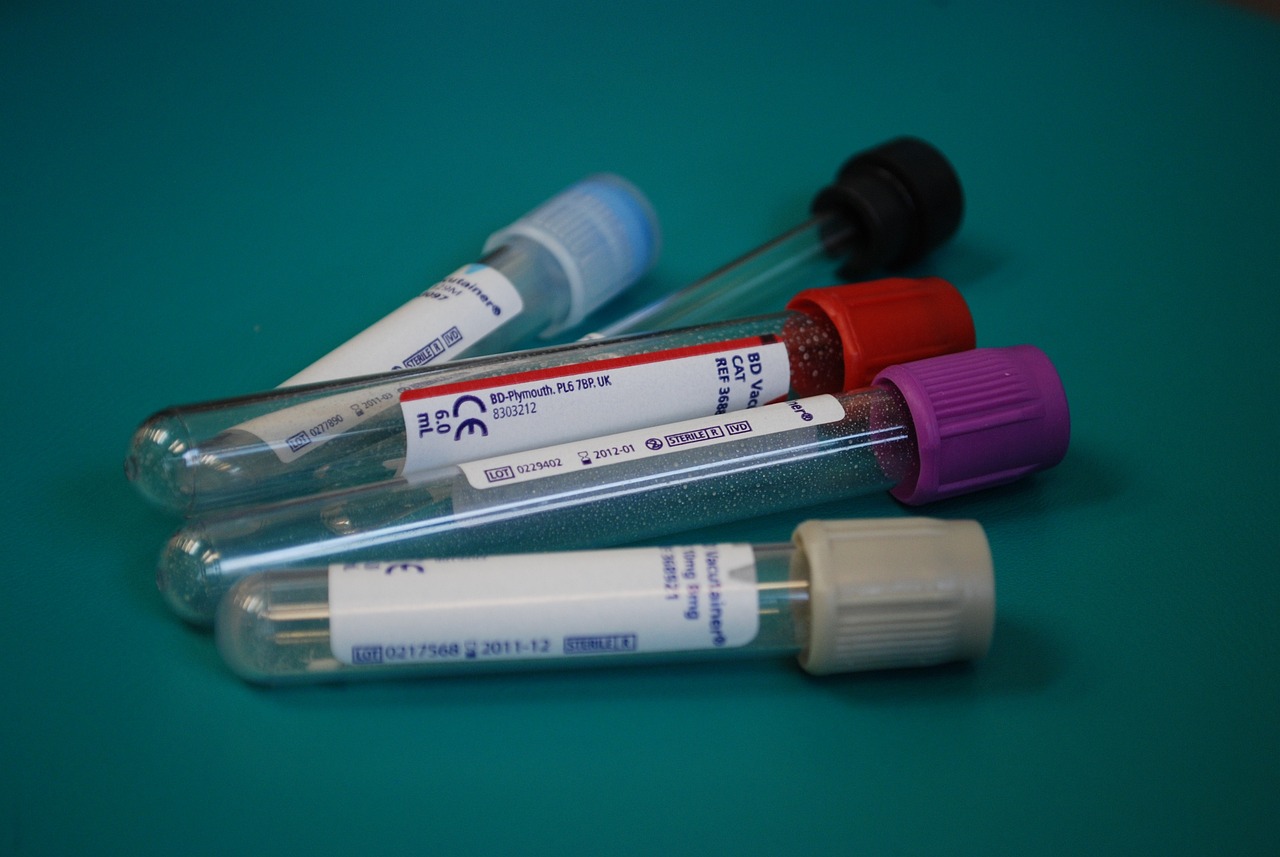When it comes to determining how long after unprotected sex you should take a pregnancy test, timing is crucial. Understanding the nuances of pregnancy testing can help you make informed decisions. Let’s delve into the various aspects of pregnancy testing and the factors that can affect the accuracy of the results.
First and foremost, it’s essential to comprehend the different types of pregnancy tests available. These tests work by detecting the presence of the hormone hCG in a woman’s body, which is produced during pregnancy. Whether you opt for a urine-based test or a blood test, each has its own level of sensitivity and reliability.
Timing plays a significant role in the accuracy of a pregnancy test. While some tests claim to provide results as early as a few days after conception, it’s generally recommended to wait at least one week after a missed period for the most reliable results. Testing too early can lead to false negatives, causing unnecessary stress and confusion.
Early signs of pregnancy, such as nausea, fatigue, and breast tenderness, can also prompt the need for a pregnancy test. These symptoms may appear within the first few weeks after conception, signaling the need for timely testing to confirm a potential pregnancy.
Factors like the sensitivity of the test, the time of day the test is taken, and the concentration of hCG in the urine can all impact the accuracy of the results. It’s essential to follow the instructions provided with the test kit carefully and consult a healthcare provider if you have any doubts or concerns.
If you’ve had unprotected sex and are unsure about the possibility of pregnancy, seeking medical advice is advisable. A healthcare provider can offer guidance on when to take a pregnancy test, discuss the results, and provide necessary support and care throughout the process.

Understanding Pregnancy Testing
When it comes to understanding pregnancy testing, it’s essential to grasp the different methods available and how they function to detect the pregnancy hormone hCG in a woman’s body. The most common types of pregnancy tests include urine tests and blood tests. Urine tests are convenient and can be done at home, while blood tests are more accurate and are typically performed at a healthcare provider’s office. Both tests work by detecting the presence of hCG, a hormone produced by the placenta after a fertilized egg attaches to the uterine lining.
Timing plays a crucial role in the accuracy of a pregnancy test. It is recommended to wait at least one week after a missed period to take a pregnancy test for the most reliable results. Testing too early can lead to false negatives, as the levels of hCG may not be high enough to be detected. However, some sensitive tests claim to provide accurate results even before a missed period, but it’s best to follow the instructions on the test kit for optimal timing.
Early signs of pregnancy can vary from woman to woman but may include symptoms like fatigue, nausea, breast tenderness, and frequent urination. These signs may prompt a woman to consider taking a pregnancy test after unprotected intercourse. It’s important to remember that these symptoms can also be attributed to other conditions, so a pregnancy test is the only way to confirm pregnancy definitively.

Timing of Pregnancy Tests
When it comes to the timing of pregnancy tests after unprotected sex, it’s crucial to understand the window of accuracy to achieve reliable results. Taking a test too early can lead to false negatives, while waiting too long may also affect the outcome. The timing of a pregnancy test is directly related to the levels of the pregnancy hormone hCG in the body, which typically increases as the pregnancy progresses. Here are some key points to consider:
- Most pregnancy tests claim to provide accurate results as early as the first day of a missed period. Testing before this time may not yield reliable results due to low hCG levels.
- For the most accurate results, it is generally recommended to wait at least one week after a missed period before taking a pregnancy test.
- Some early detection tests on the market can detect hCG levels even before a missed period, but their accuracy may vary.
- Factors such as the sensitivity of the test and the concentration of hCG in the urine can also influence the timing of when to take a pregnancy test.
Therefore, it is essential to follow the instructions provided with the pregnancy test kit and consider the recommended timing for the most reliable results. Remember, patience is key when it comes to taking a pregnancy test after unprotected intercourse to ensure accurate and trustworthy outcomes.

Early Signs of Pregnancy
When it comes to early signs of pregnancy, it’s essential to be aware of the subtle changes that your body might be going through. These signs can vary from person to person, but there are some common symptoms that many women experience in the early stages of pregnancy.
One of the most well-known early signs is a missed period, which often prompts women to take a pregnancy test. However, before a missed period occurs, there are other indications that may suggest pregnancy. These can include:
- Implantation bleeding: Some women may experience light spotting when the fertilized egg attaches to the uterine lining.
- Increased fatigue: Feeling more tired than usual, even with sufficient rest, can be a sign of early pregnancy.
- Changes in breast sensitivity: Swollen or tender breasts are common in the early stages of pregnancy due to hormonal changes.
- Nausea or morning sickness: Some women may experience nausea, particularly in the morning, as an early pregnancy symptom.
These early signs are not definitive proof of pregnancy, but they can indicate the need for a pregnancy test. It’s important to remember that each woman’s experience with early pregnancy symptoms can be unique, and not everyone will have the same indicators. If you suspect you might be pregnant based on these signs, it’s advisable to take a pregnancy test to confirm.

Factors Affecting Test Accuracy
When it comes to the accuracy of a pregnancy test, several factors come into play that can affect the reliability of the result. Understanding these factors is crucial in interpreting the test outcome correctly. Here are some key elements that can influence the accuracy of a pregnancy test:
- Sensitivity of the Test: The sensitivity of a pregnancy test refers to its ability to detect low levels of the hormone hCG in the urine or blood. Tests with higher sensitivity levels can detect pregnancy at an earlier stage, increasing the accuracy of the result.
- Timing of Testing: The timing of taking a pregnancy test is crucial for its accuracy. Testing too early after unprotected sex may result in a false negative as the hCG levels may not be detectable yet. It is recommended to wait until after a missed period for more reliable results.
- Quality of the Test: The quality of the pregnancy test used can also impact its accuracy. Using a reputable and reliable brand of test can reduce the chances of false results.
- User Error: Incorrect usage of the test, such as not following the instructions properly or misinterpreting the results, can lead to inaccurate outcomes. It is essential to read and follow the test instructions carefully.
Considering these factors and ensuring that the pregnancy test is conducted correctly can help in obtaining accurate results and avoiding any confusion or misinterpretation. If there are any doubts about the test outcome, it is advisable to consult a healthcare provider for further guidance and clarification.

When to Seek Medical Advice
When to seek medical advice after unprotected sex is a crucial consideration for individuals concerned about potential pregnancy. It is advisable to consult a healthcare provider if:
- You experience unusual symptoms: If you notice any abnormal symptoms such as severe abdominal pain, heavy bleeding, or dizziness, seeking medical advice is essential to rule out any complications.
- Multiple negative test results: If you have taken multiple pregnancy tests after unprotected intercourse and all results are negative, but you still suspect pregnancy due to persistent symptoms, consulting a healthcare provider can provide clarity.
- Concerns about contraceptive failure: In cases where contraception was used but there are doubts about its effectiveness or if a mishap occurred, discussing the situation with a healthcare professional can offer peace of mind and guidance on next steps.
Remember, healthcare providers are equipped to offer guidance, conduct further testing if necessary, and provide appropriate advice based on your individual circumstances. Seeking medical advice promptly can help address any concerns or uncertainties regarding pregnancy after unprotected sex.